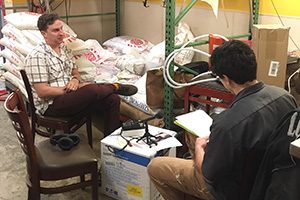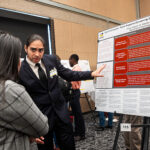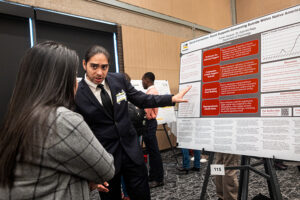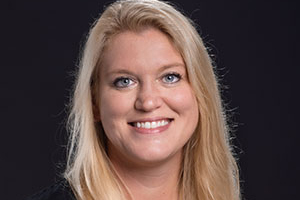When John Harry applied for the UWM History Department’s graduate program, he had trouble deciding what area of history he wanted to focus on.
“It never occurred to me that I had to pick a lane. I’ve always collected beer antiques, what they call ‘breweriana.’ I was like, what about beer history?” Harry recalled. “Around the same time, (a woman named) Theresa McCulla got her job as the beer historian at the Smithsonian. I thought, that’s amazing. I can combine my love of beer and history.”
Now, thanks to his research, Harry landed a summer internship working for McCulla at the Smithsonian’s National Museum of American History in Washington, D.C.
The internship started as a pie-in-the-sky idea to fulfill an internship requirement for Harry’s degree.
“I figure, shoot high, right? If I could study with somebody and learn what they do, who would I want to be with?” Harry said.

The answer was, of course, the beer historian herself, Theresa McCulla. Harry sent her an email asking if she would be willing to take him on. Despite obstacles like the government’s five-week shutdown this past December and January, they eventually connected and McCulla agreed to mentor Harry for a summer internship.
He spent the summer assisting McCulla with her job as one of the curators at the American History Museum. His main duties include transcribing and adding metadata to almost 40 oral histories McCulla has collected from people involved in the history of craft beer and home brewing.
A major highlight of his internship was being able to go along with McCulla to two breweries to record these oral histories, where he was able to contribute by asking his own questions. Harry was also accepted to write a blog post on the history of the legality of home brewing for the museum’s website.
When he’s not working on McCulla’s research, Harry is conducting his own. His UWM thesis focuses on the role of African American labor and consumerism in the Civil Rights era surrounding breweries, so Harry’s been digging up old labor documents at the Library of Congress and the Beer Institute lobbying firm in D.C., among other places.
Harry calls his internship experience “amazing,” and not just because the Smithsonian is home to some fantastic pieces of history. (“I got to go into the staging area, and there’s C-3PO and R2D2 just hanging out. They keep them around because they’re on public display so often.”)
“The best part of it for me is that there’s this academic community where you get to bounce ideas off of really smart people who are super-generous with their knowledge and want you to succeed,” Harry said.
Telling a community’s story
The journey to get to his current location was long and twisting. Harry entered UWM’s graduate program in public history last fall after a 10-year career as a radio DJ. He’s always been fascinated by brewing culture and history, and he even helped Point Brewery in Stevens Point, Wisconsin, pen a book about its history. The brewery celebrated its 160th anniversary in 2017, and it’s the fifth-oldest brewery in the nation. The book is due out in November.
“One of the fun things is the community involvement in these projects,” Harry said. “I’m not telling my story; I’m telling the community’s story about the brewery. For the Point Brewery book, I got to do what’s called a history harvest, where I had people bring in their favorite Point Beer artifacts and memories. One lady sent me a picture of her husband in Vietnam kissing a Point Beer can in the ’70s.”
Harry also helped create a pop-up exhibit for the Milwaukee County Historical Society that explores the intersection of brewing and the Civil Rights movement. The exhibit, which runs through October, focuses on a group of African American businessmen in the 1960s who attempted to buy Blatz Brewing in hopes that the brewery could create jobs and help lift African Americans in Milwaukee out of poverty.
“Beer history shows up everywhere in American history – it’s related to everything,” Harry said.







